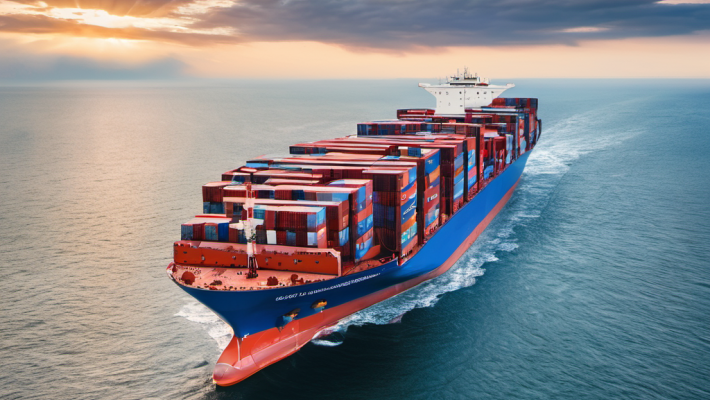Freight Forwarder Insights
Huin International Logistics Latest Articles
The Role of NVOCCs in International Logistics
Logistics and shipping organizations perform a range of activities for their clients, such as ocean, air and land freight forwarding, cross-trade services, customs clearance, warehousing, etc. One of the basic services provided by these organizations is NVOCC services. NVOCC stands for Non-Vessel Operating Common Carrier. NVOCC acts as an intermediary to assist suppliers in transporting goods around the world. If you are looking for reliable NVOCC services in China, contact HUIN International Logistics.
NVOCC does not own or operate its own vessels. Instead, it provides ocean shipping services by combining multiple customers' cargoes together, putting them in one container and shipping them. This is a great example of achieving economies of scale and optimizing shipping costs. In other words, NVOCCs are consolidators, not ship owners. They organize the shipping process and handle all the big and small tasks such as booking slots, sorting cargoes, and managing paperwork.
The global shipping industry faces many challenges and complexities, especially with the increase in trade volumes and the intricacies of the supply chain. The traditional shipping model has its limitations. It is in this context that NVOCCs come into being, simplifying the system and acting as a bridge to provide flexibility and efficiency in transportation. NVOCCs have a unique relationship with shipping lines. Their additional expertise and infrastructure allow them to offer a host of services that streamline logistics processes and facilitate international trade. Learn more about one of Dubai’s leading international freight forwarding and NVOCC service providers.
Let’s take a closer look at how NVOCCs play an important role in global logistics.
1. Comprehensive range of services
Whether it’s cargo consolidation, booking, customs clearance or documentation, NVOCCs offer a variety of solutions to their clients. They act as mediators between shippers, consignees and carriers and streamline the logistics chain, thereby ensuring seamless operations and on-time deliveries. Businesses can take advantage of the reduced administrative burden and focus on their core competencies.
2. Industry expertise and extensive knowledge
NVOCC service providers such as HUIN have valuable industry expertise and in-depth knowledge of the shipping and logistics industry, enabling them to handle complex tariffs, regulations and paperwork. With vital insider information on international trade laws, customs procedures and shipping regulations of different countries, a capable NVOCC will be able to guide clients and help them navigate the complexities of global logistics. NVOCCs also have the skills to ensure compliance, minimize delays and prevent potential pitfalls.
3. Competitive Prices and Service Agreements
As mentioned earlier, NVOCCs have the advantage of unique relationships with carriers, which gives them the upper hand in negotiating prices and offering better service agreements with shipping lines. Even during peak seasons, when vessel capacity is limited, NVOCCs can secure carrier space. This is particularly beneficial for SMEs and new businesses, as they are not large enough to give them leverage in negotiating prices. Therefore, NVOCCs take full advantage of their long-term relationships with shipping lines to offer competitive prices and enforceable service agreements, enabling small, medium and startup companies to compete in the international market.
4. High Flexibility and Accessibility
Working with NVOCCs has the advantage of flexibility. Using their knowledge of carriers, NVOCCs can find suitable vessels for transportation based on customer requirements. Customers do not have to wait until the next suitable vessel sails to a specific destination. NVOCCs will have easier access to sailing schedules, making cargo transportation faster.
Another advantage is that NVOCCs are able to issue their own bills of lading (HBL). Generally, global freight forwarders issue their own bills of lading that follow the regulations of the International Federation of Freight Forwarders Associations (FIATA). NVOCCs, on the other hand, enable customers to save time by eliminating a major step in the process of transporting goods from one destination to another.
5. Improve operational efficiency
NVOCCs have an extensive network and strong infrastructure, which enables them to improve operational efficiency. From seamless door-to-door cargo handling to managed warehousing and accurate distribution, NVOCCs ensure that goods are transported quickly. In addition, they have advanced facilities such as tracking systems, real-time visibility of cargo, and complex supply chains that provide guaranteed, secure delivery to customers.
6. Advocates of sustainable development
There is a growing focus on reducing carbon emissions and adopting environmentally friendly practices. NVOCCs play an important role in promoting sustainable shipping practices. The consolidation of cargo can maximize container utilization, thereby reducing the number of ships. This reduces carbon emissions per unit of cargo transported. Many NVOCCs also utilize intermodal transport, such as rail or inland waterways, to reduce dependence on road transportation, thereby reducing emissions.
NVOCCs must comply with several licensing regulations to gain a place in the global shipping industry. That being said, they offer several benefits to their clients in changing shipping rules. If you are a business owner looking to reap the benefits of an NVOCC, get in touch with us. In addition to the NVOCC license, HUIN International Logistics is also an international freight forwarder in China. Learn more about our services here.
